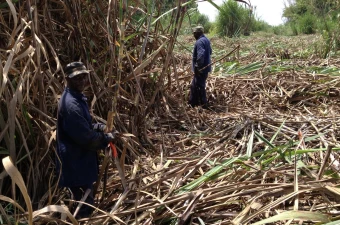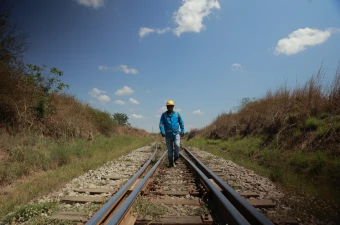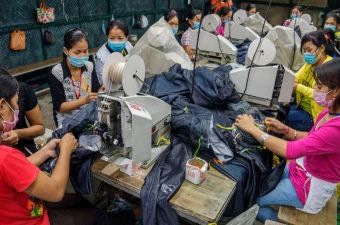Millions of workers worldwide simply don’t earn enough money to support themselves and their families. A living wage for workers throughout the supply chain is essential to combat poverty, inequality, and child labour.
CNV Internationaal is committed to a living wage for every worker. Over the past few years, attention for living wages has grown. More and more companies have come to realise that not having a living wage is a significant human rights risk in their international supply chains. One which they need to take seriously and address.
However, in order to achieve living wages in a sustainable way, CNV Internationaal emphasises that it’s crucial to involve the workers and their unions in this process from the very start.
What is a living wage?
The definition of a living wage:
A living wage is the remuneration received for a standard work week by a worker in a particular place sufficient to afford a decent standard of living for the worker and her or his family.
Elements of a decent standard of living include food, water, housing, education, health care, transport, clothing, and other essential needs, including provision for unexpected events.
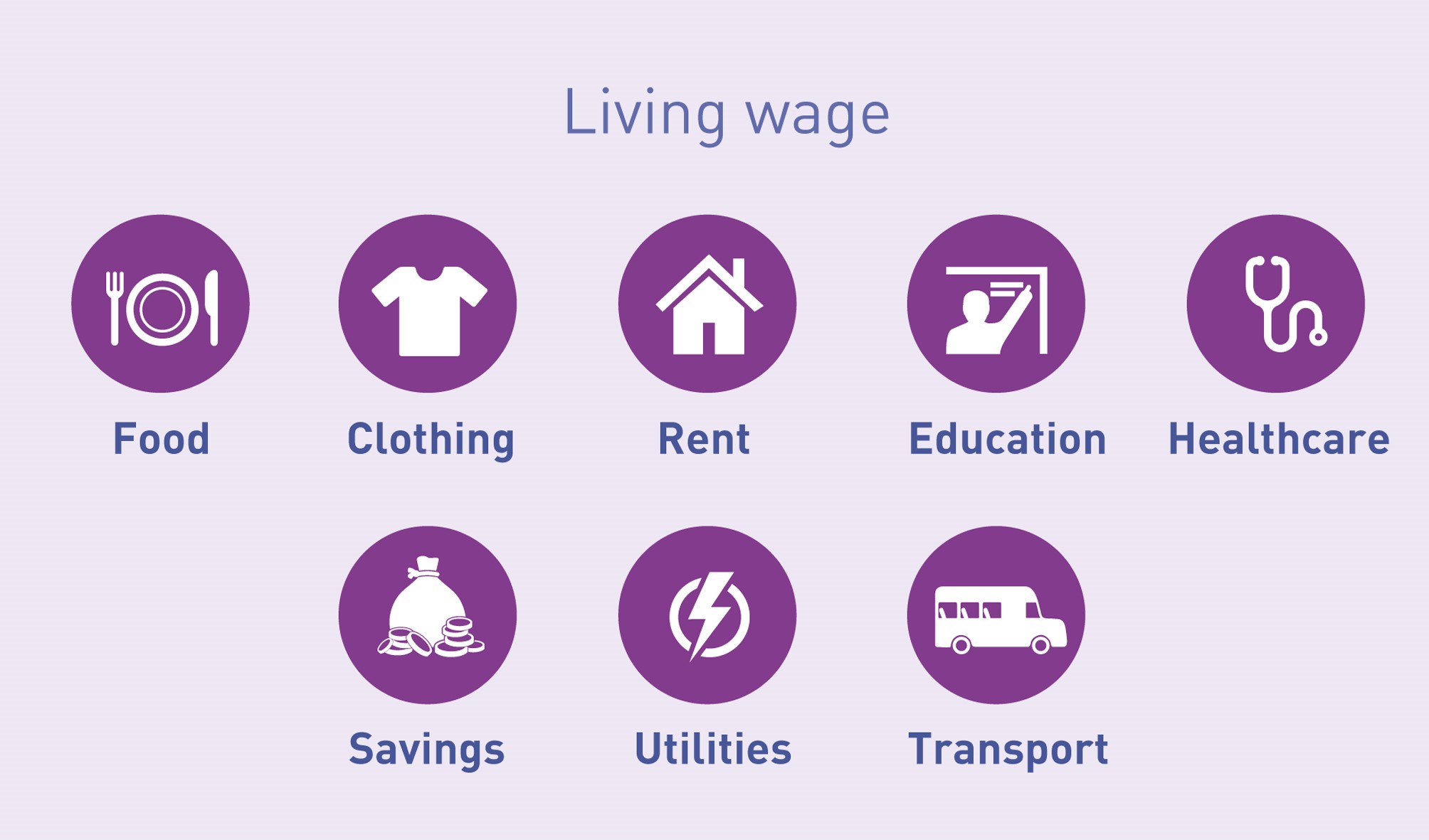
It differs from the minimum wage, which is the legal minimum pay established by governments. In cases where a minimum wage does exist, it often falls short of what is necessary for a decent standard of living. In some countries, there may not even be a legally defined minimum wage.
For many workers, the hourly wage is insufficient to cover their living expenses. A standard workweek does not provide enough income to make ends meet, forcing individuals to take on additional hours because a typical work schedule is not financially sustainable.
When parents aren’t paid enough , there is an increased risk of child labour.
FACTSHEET
To learn more on CNV Internationaal and living wage, check our factsheet
A union's plea for a living wage for everyone (PDF Download) >>
Mapping the wage gap with our Fair Work Monitor
To be able to improve labour conditions such transparency and good data are vital. In order to represent workers properly, unions can use the Fair Work Monitor developed by CNV Internationaal.
A living wage and a safe working environment are important topics for unions when negotiating with employers. The monitoring tool plays an important part in mapping the gap between the wage that is being paid to workers and a living wage.
Local unions can use the tool to make their own survey. Workers can complete this survey, easily and anonymously, on a tablet or phone. This way local unions know exactly if workers earn a living wage and if they feel safe.
The Fair Work Monitor has been used during the negotiations for a minimum wage for in the textile industry in Cambodia. Despite the wage increase, this still did not lead to a living wage by 2023; garment workers still do not earn enough to pay for shelter, food, school and any medical care.

Fair Work Monitor
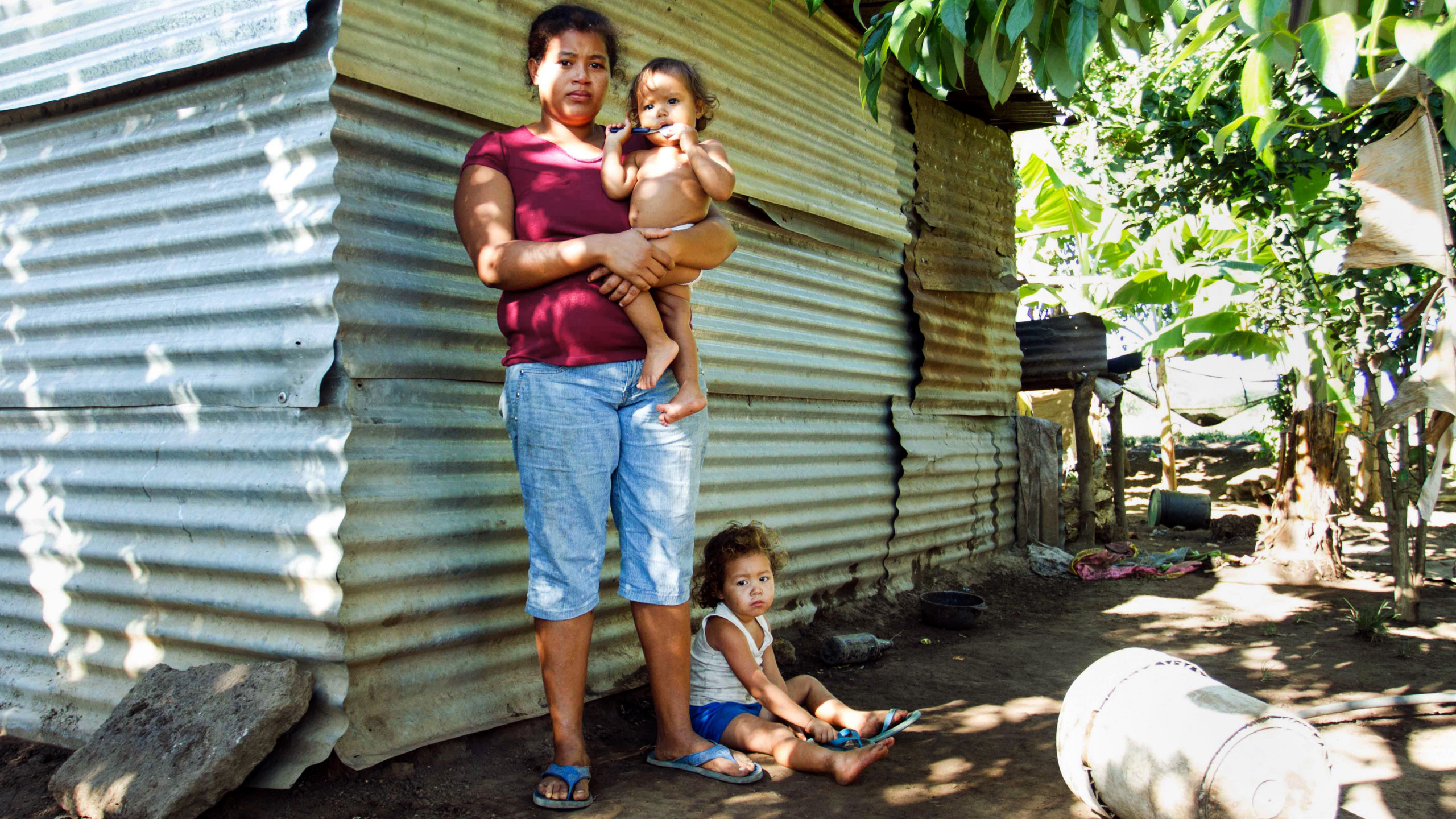
Issues
Precarious work and inequality
In the sugar sector, harvesters, women in particular, usually do not have a permanent contract.
Men and women are often not offered a permanent contract – or any contract at all. Because of this lack of job security, most workers do not feel secure enough to negotiate a fair wage; they can be easily replaced by someone else. In the direst situations where labour is scarce, workers are forced to do the work for even lower wages or deferred payment.
The dependent position of the worker makes it impossible for him/her to say no to insufficient wages. Particularly migrants who depend on company living quarters experience forms of disguised forced labour. Sometimes their passport is taken away so that the worker isn't able to leave.
Some companies refer in their responsible business policy or code of conduct to less demanding local laws and customs; these then serve as guidelines for the company policy. This can lead to major differences in the application of the policy between the countries in which a company operates.
Moreover, local governments sometimes apply double standards. They have recognised a living wage as a necessity, but also create free trade zones (export processing zones) to stimulate the economy. Here, international companies have a lot of room to manoeuvre, but independent trade unions have no access, and control over living wages is hard to find.
Also, the defined policy and wages in a company often only apply to permanent employees. So, not for flex workers and hired workers. A company can include in its human resources policy that equal wages must be paid for all employees, including those hired in.
In addition, men and women are often paid unequally.
Facts on wages
8% of employed workers live in extreme poverty
Having a job does not guarantee a decent living. Worldwide, 8% of employed workers and their families live in extreme poverty, despite a rapid decline in the working poverty rate over the past 25 years . Governments play an important role in wage-fixing mechanisms at the national and sectoral level.
170 countries minimum wages set
Over 170 countries have one or more minimum wages set through legislation. In many countries however, the minimum is often below the living wage as it is not enough to provide a decent living.
Pay gap: women earn 20% less
According to the International Labor Organization's Global Pay Gap survey, women worldwide earn on average 20% less than men for comparable work.
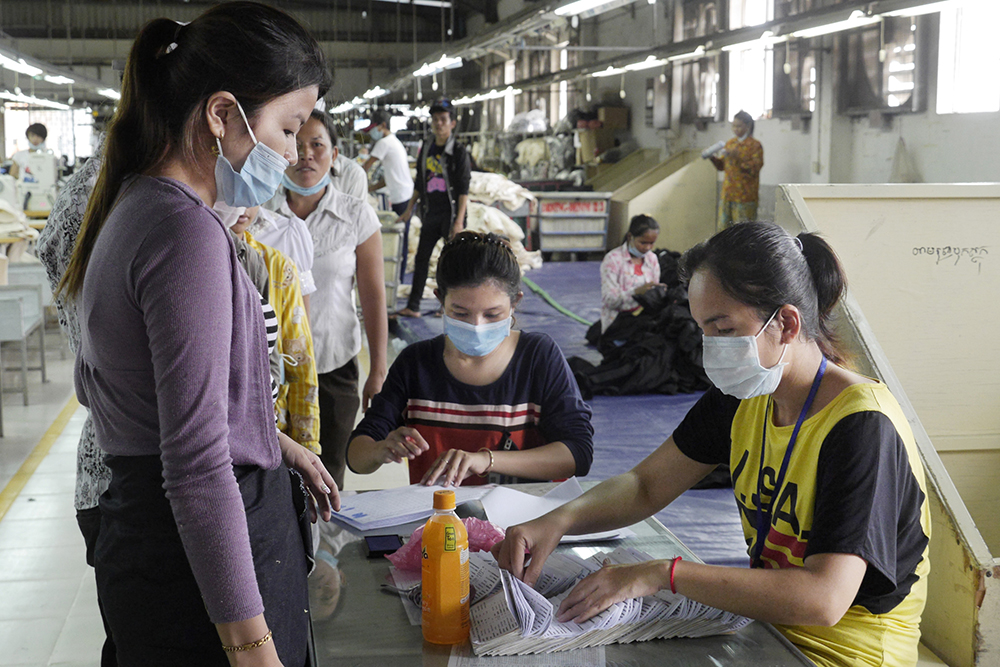
The role of trade unions
Towards a sustainable living wage
For a sustainable living wage, good negotiations between independent and representative trade unions and employers are important, so that the wage becomes livable in the future.
Textile industry
What we do: Multicompany CBA's
In Asia in the garment industry CNV Internationaal has developed succesfull multi-Company Collective Bargaining Agreement (MC-CBA) projects.
In a multicompany CBA, workers (unions), employers and government in a specific region or industry, enter into a collective bargaining agreement that improves working conditions and production. Thus, together the step towards fair work is taken. The MCCBAs are a sustainable approach to reduce supply chain risks.
What we do: Fair Work Monitor
In Cambodia CNV Internationaal's Fair Work Monitor was used for the negotiations of the minimumwage in the textile industrie in Cambodja in 2022 for the first time.
The latest outcomes of the 2023 Fair Work Monitor in Cambodia reveal alarming outcomes: The average garment worker earns a mere 260 USD while living expenses for garment workers are around 500 USD. Salaries need to rise significantly in order to bridge this gap.
Explore the results and our recommandations>>
Learn how the Fair Work Monitor works for garment workers in Cambodia
Steps are taken but millions of people working in the textile industry still don't earn enough to pay for housing, food, school and medical care.
Workers in textile still don't earn a living wage
Sugarcane industry
In Latin-America CNV Internationaal successfully monitors the sugarcane industry, through a Labour Rights Observatory we launched in 2021. We started conducting a groundbreaking survey using digital tools.
Learn how the 100% Fair Work Monitor works for sugar cane workers in Latin America
More than 800 men and women workers from the sugar industry were able to participate, providing us with data and vital information on labour conditions in the value chain.
We're presenting the results of the first year through a Dashboard with clear graphs so you can explore some of the most relevant findings.
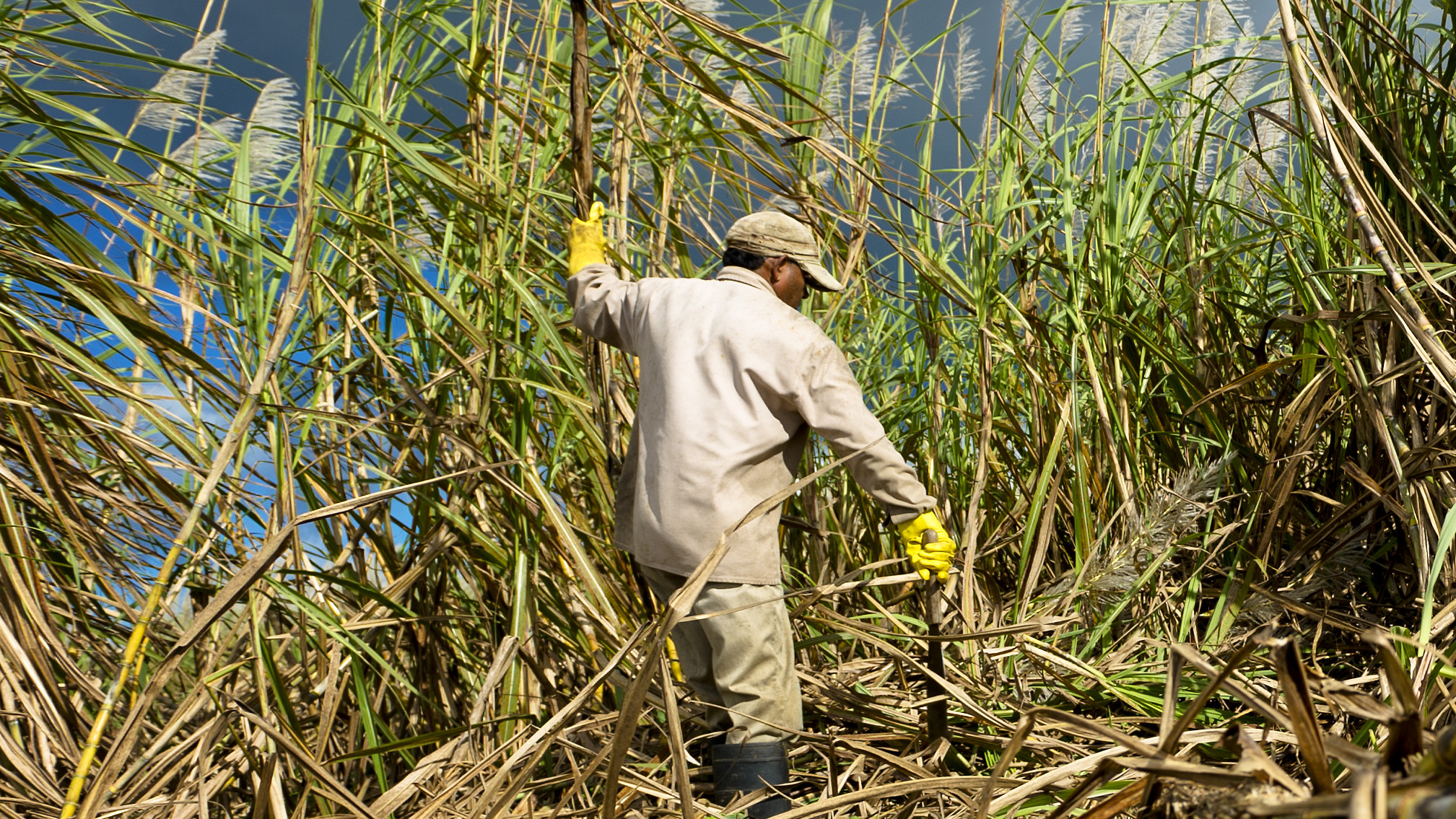
European investors support living wage in the sugar chain: Road map
European investors in the international sugar chain also want to make the sector more socially sustainable and improve labour conditions. Therefore, they too support the inclusion of a living wage in the Bonsucro Standard. Together with CNV Internationaal they presented the roadmap a living wage throughout the cane sugar supply chain' on 28 October 2021 >.
Their aim is to motivate the different actors in the chain to cooperate in various ways, including the use of social dialogue and pilot projects, to progressively achieve a living wage for workers in the sugar sector.
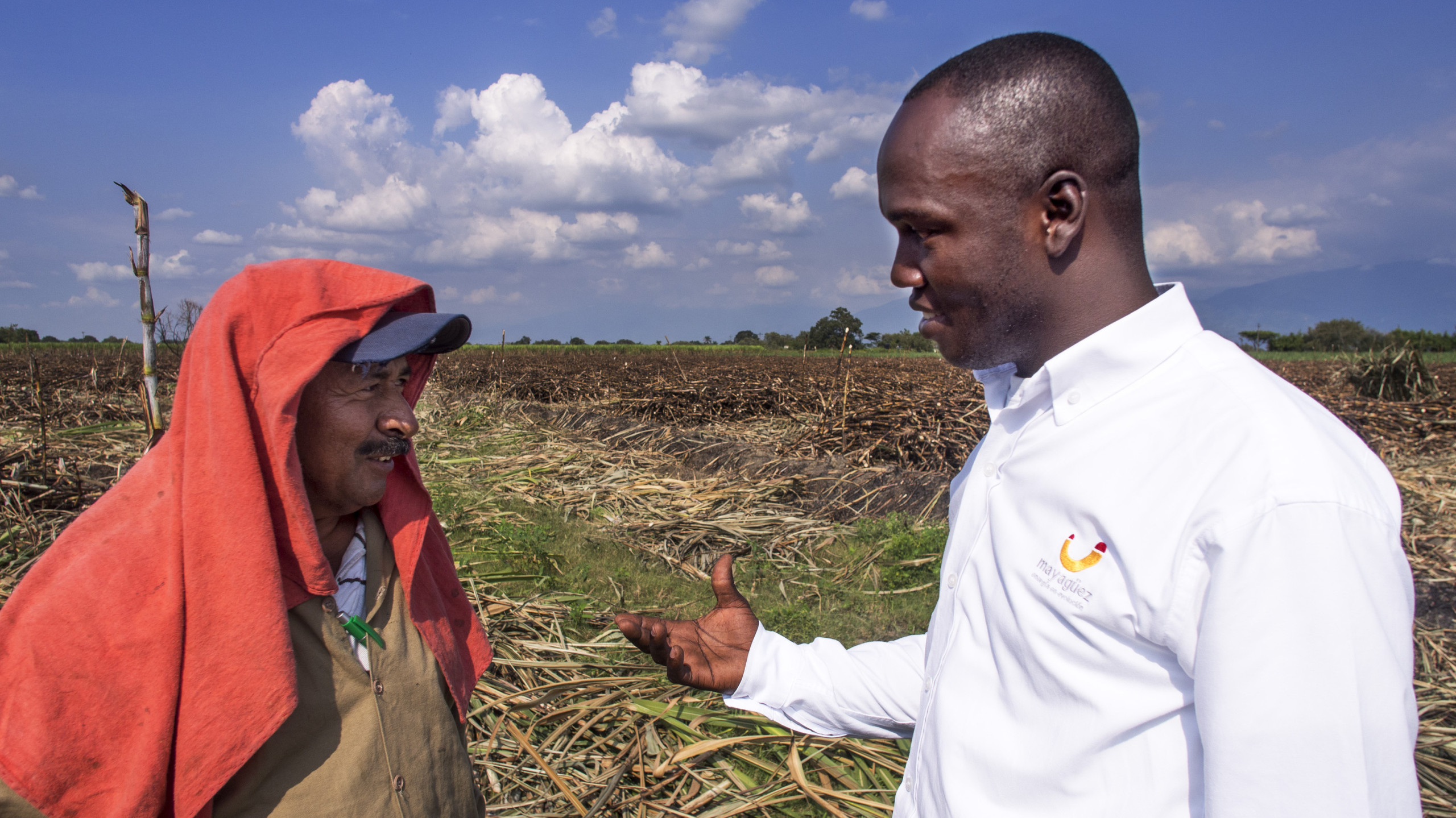
Working together, contact us
CNV Internationaal works together with companies, governments and foundations. Learn more on the possibilities in this project proposal.
Get in touch if you want to explore opportunities for collaboration to reach 100% Fair Work.
Contact Daantje Bras, fundraiser and partnerships coordinator at CNV Internationaal, d.bras@cnv.nl or phone +31 6 43573117.

Project proposal
Living Wage for Sugarcane Workers
Developing a roadmap together towards a living wage for the most vulnerable workers in the sugarcane sector (PDF download) >
DOWNLOAD
To learn more on CNV Internationaal and living wage check our factsheet
A union's plea for a living wage for everyone (PDF Download) >>
